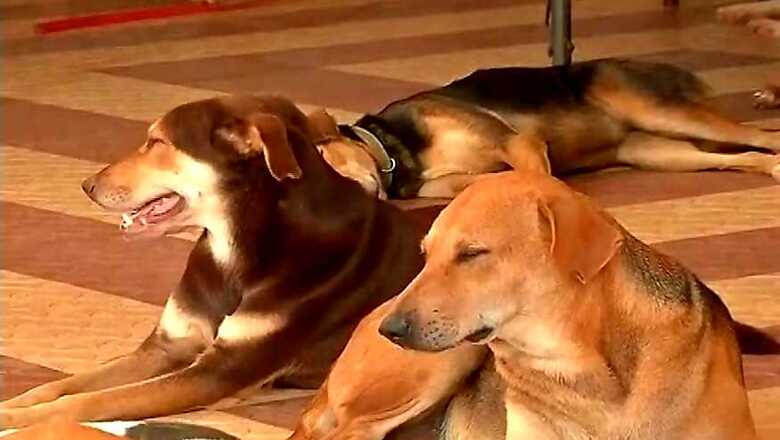
views
New Delhi: According to a new study, cancer is on the rise among domestic animals in Kerala. An ongoing research by the Chief Disease Investigation Office (CDIO) of the state’s animal husbandry department has shown a growing incidence of cancer among cats, dogs and cattle.
The year-long study by CDIO’s diagnostic oncology facility at Palode has shown certain “exotic breeds” of dogs and cats, to be at higher risk to get mammalian and transmissible venereal cancer, than “local nondescript” varieties.
Since 96 percent of the cattle in the state is crossbred, said Dr NN Sasi, director CDIO, a breed-wise trend could not be of much help.
Sasi added, “The animals are susceptible to tumours in the brain and nasal cavities.”
Authorities at the organization further added that since it is a preliminary study, they are yet to propose a remedy to the problem.
The diagnostic oncology facility was established a year ago when CDIO took note that the rise in cancer, a lifestyle disease common among humans, could also mean a similar rise among other animals.
“We heard of animals dying, but didn't know the reason behind some of these deaths,” Sasi explained. Kerala, he said, had no such diagnostic facility for animals.
Cancer in humans in one of the most non-communicable diseases (NCDs) that affect India. According to latest government data, there were 14,51,417 cases in 2016.
The study, however, has only shown that there is a problem. Sasi said, “More work has to be done to know why these animals are suffering from cancer and why certain breeds such as Alsatians and Labradors have a higher incidence.”
The report has stated, “Little data exists on the occurrence of tumours in animals, since the procedure was not standardized before. This makes the clinical management arduous.”
It is also too early to say that pedigree animals may have a genetic predisposition to certain cancers, as the CDIO is “yet to obtain data on familial or genetic predisposition of cancer in animals.”
Sasi said that they would take the research to other parts of the state as well.
“We’re sharing our facilities with four regional laboratories and we have a Memorandum of Understanding (MoU) with the Regional Cancer Centre in Thiruvananthapuram,” said Sasi.
According to the report, the facility is been utilised only by the pet owners and vets at Trivandrum. However, with a greater task at hand, the aim is to open up the facility to a larger prospect.















Comments
0 comment